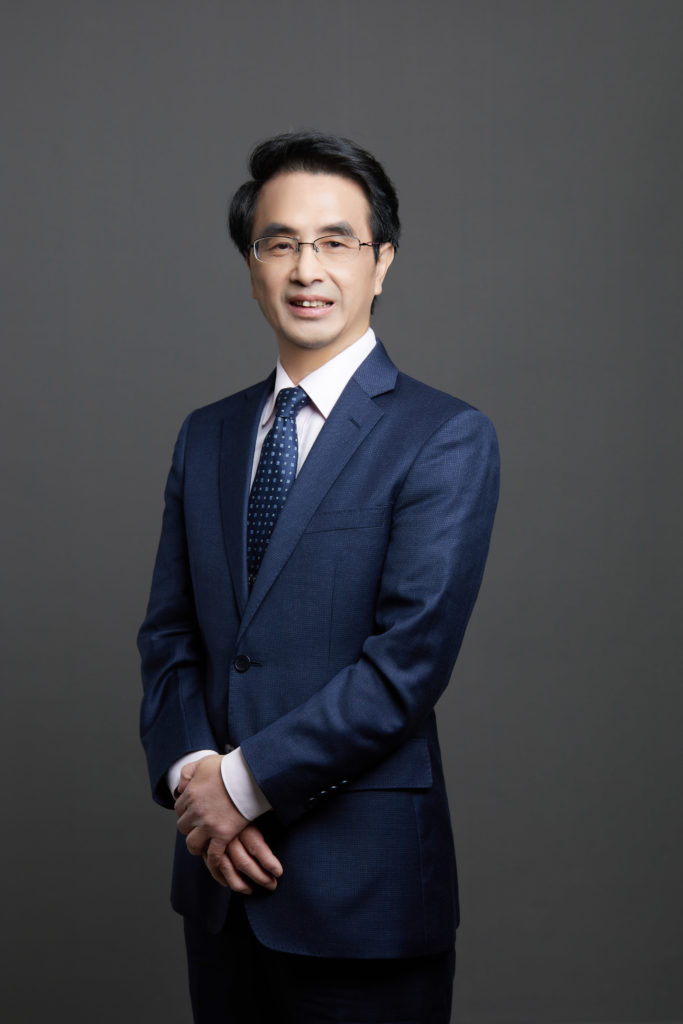
Rocket research takes off
Alum Jong-Shinn Wu coined the nickname “Uncle Rocket” for his work on rocket technology and his new position as Director General of Taiwan’s National Space Organization (NSPO).

Alum Jong-Shinn Wu coined the nickname “Uncle Rocket” for his work on rocket technology and his new position as Director General of Taiwan’s National Space Organization (NSPO).

“Uncle Rocket” looks particularly cool about a minute and fifteen seconds into the rap video with the same name—his silhouetted profile is shown in an eerie light, surrounded by wisps of smoke. He shows up repeatedly in similarly trendy shots over the remaining three minutes of the track, often alongside Taiwanese rapper Dwagie. Not the first place a Michigan Engineering alum might look for a former classmate, but here we are.
Jong-Shinn Wu (PhD Aero ‘94) adopted the “Uncle Rocket” persona as part of his post as Director General of Taiwan’s National Space Organization (NSPO), a position he accepted in August of 2021. It’s an identity he has fully embraced after years as the leading proponent of rocket technology in Taiwan. The directorship is a position that fits perfectly with Wu’s research background, but somewhat less so with his personality.
“I used to be a nerd, you know,” he said, in a lighthearted manner with a touch of self-deprecation. “I was always shy, but because of this, of what we’re trying to do for Taiwan, I wanted to be Uncle Rocket.”
Over the years, Wu’s research has diversified as his interest in rockets has increased. His initial focus was on dynamic combustion turbulence measurement, and he eventually moved into plasma physics.
These days’ he’s helping NSPO build and launch the island country’s own satellites into Low Earth Orbit. But Taiwan’s space exploration program requires an approach far different from what you’d find at NASA. Rocket research has traditionally been a low funding priority, so the onus is on researchers like Wu to do their own fundraising.
For nearly eight years, Wu has appeared in crowdfunding videos reaching out to the public for financial support for the development of rocket technology. And while it has never been an easy role for him to perform, Uncle Rocket has found a supportive audience—raising more than $8 million so far.
All of this is a long way from Wu’s start in the city of Tainan on Taiwan’s southwest coast. He described his family as poor, and neither of his parents could read or write. His mother worked on a farm while his father took jobs where he could, earning money with the family tri-motorcycle.
Wu’s five older siblings went to work earning money for the family, enabling him to pursue his education. And from an early age, his father’s motorcycle captured his attention, providing his first glimpse at engineering.
Wu traveled to Taipei City in 1982 where he spent six years earning bachelor’s and master’s degrees in mechanical engineering at National Taiwan University. By the time he’d finished, he was well aware of U-M’s reputation in aerospace engineering, but had little to go on regarding life in the American Midwest.
“At this point, there’s no Internet so it’s difficult to know much about life at the University of Michigan when you can’t Google it,” Wu said. “All I knew was what a former senior classmate already there told me in his letters. So I knew that it was very cold, and that it’s a very beautiful place.”
He set foot on U-M’s campus for the first time in July 1990. It began a four-year stretch that would mold his professional approach, give him the opportunity to work with a legend and marry the girlfriend he met at National Taiwan University during a 1993 visit to Ann Arbor.
The legend, in this case, was Gerard M. Faeth, the late Arthur B. Modine Distinguished Professor of Aerospace Engineering.
“In addition to what I learned from him on the academic side, he was very, very organized and very, very determined,” Wu recalled. “That’s what I took away from him and it made me very organized as well.”
And the marriage? He and Yen-Ping Wang have been together for more than 30 years now. She runs her own business, while their daughter and son, both in their 20s, are in the engineering realm as well.
It’s a solid base for the next chapter in Wu’s career, leading NPSO at a time of heightened interest in space exploration. And there is much to do to move technology development and application forward.
“We would like to commercialize our technology because, in Taiwan, NSPO is the only institute or entity that has a complete knowledge of satellite design and manufacturing,” he said. “Right now, we’re in a stage of expanding our national space program, and we are trying to design a mechanism to pass on to the private sector.
“It’s different from the system in the U.S., where NASA provides funding as well as the mission direction and utilizes an outside company like a Lockheed Martin to see it through. But in a smaller country like Taiwan, our goal is to provide the technical expertise and make it available to the private sector to utilize.”